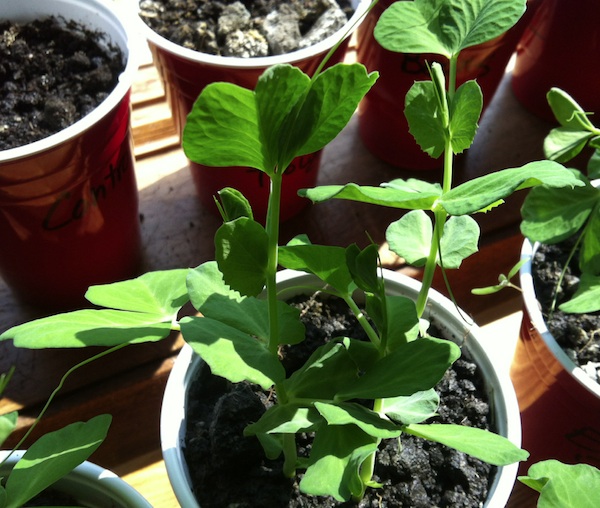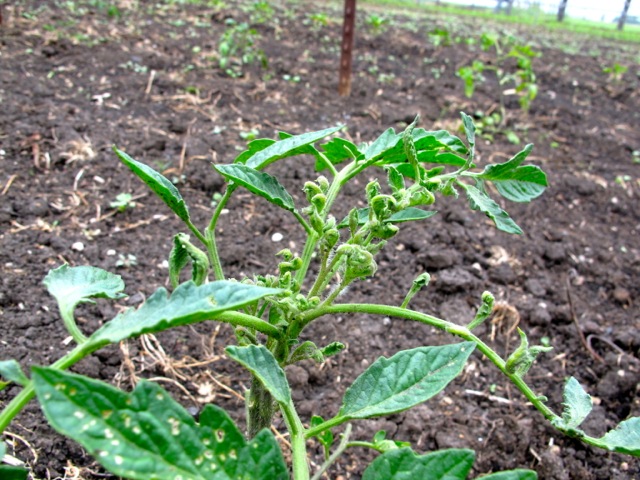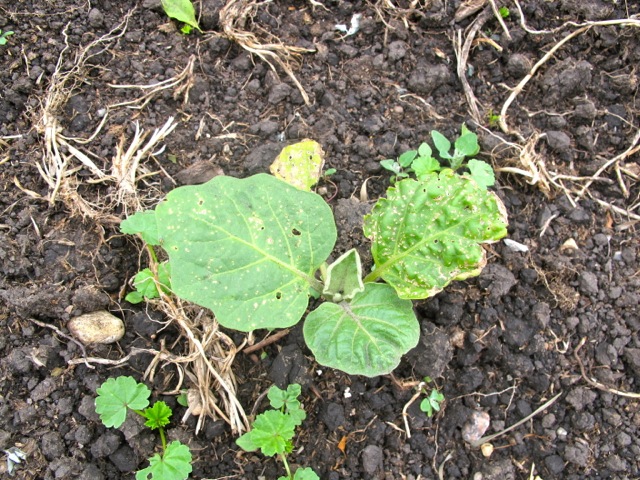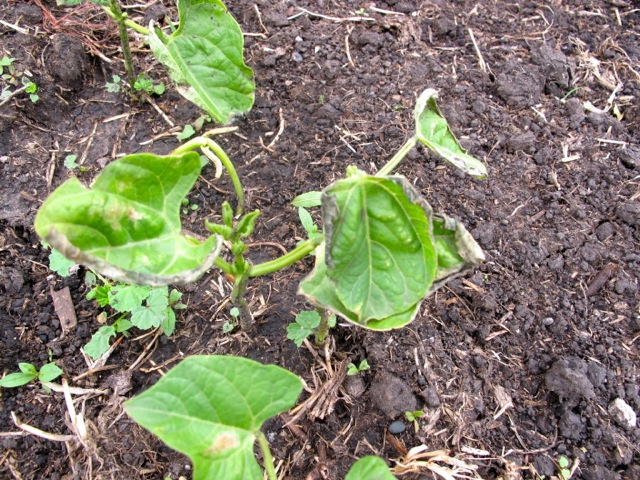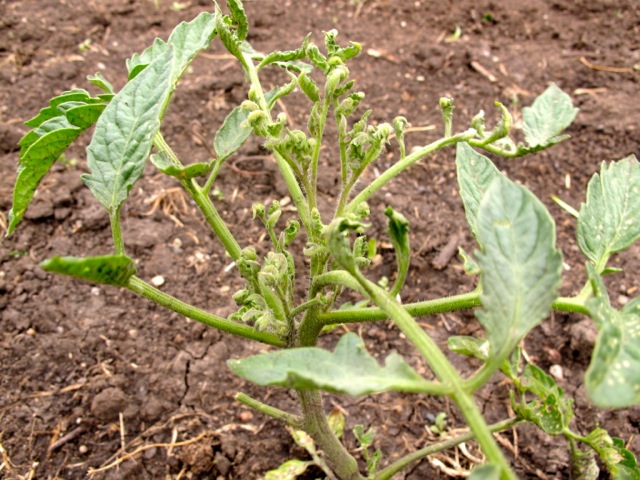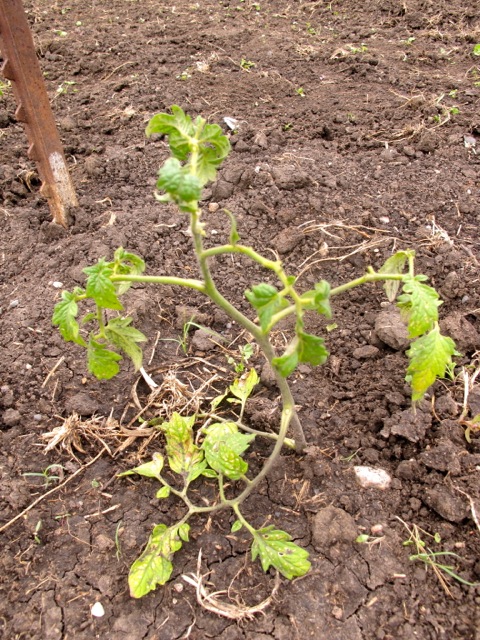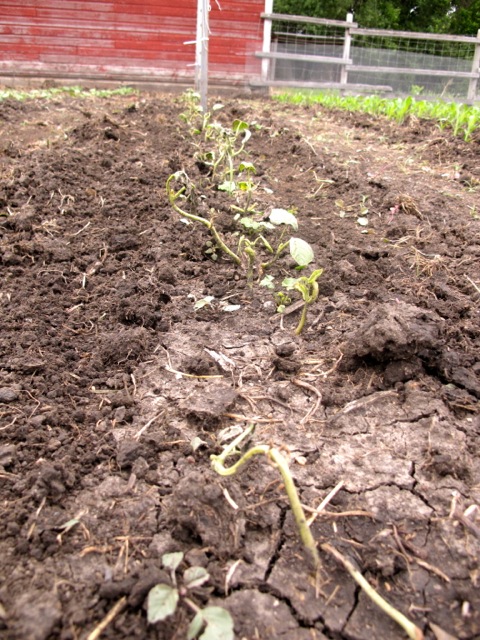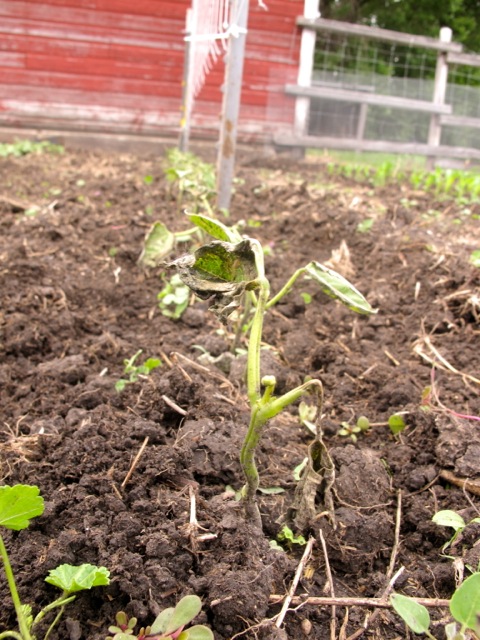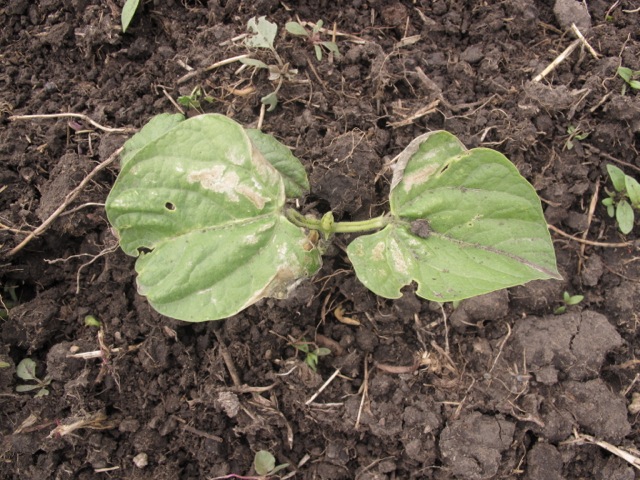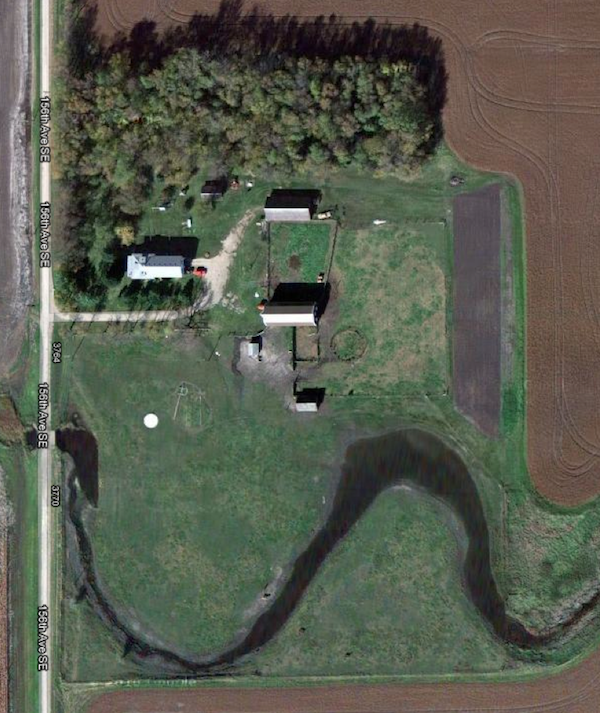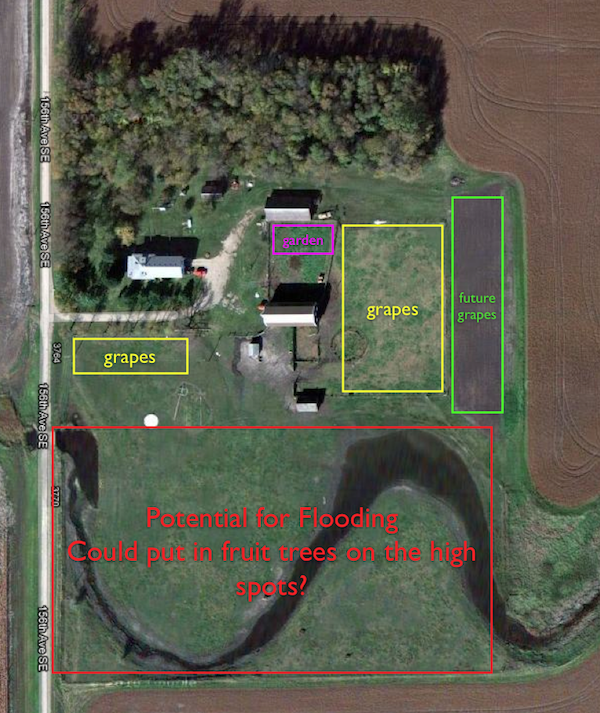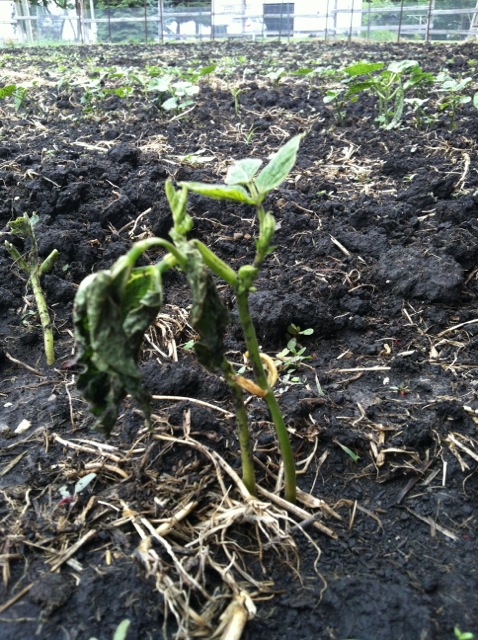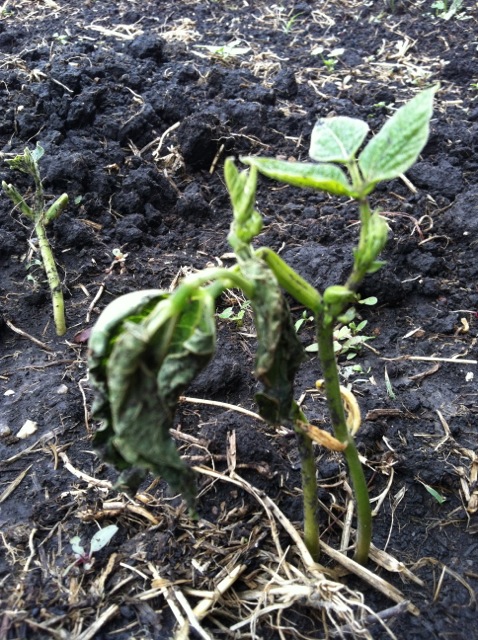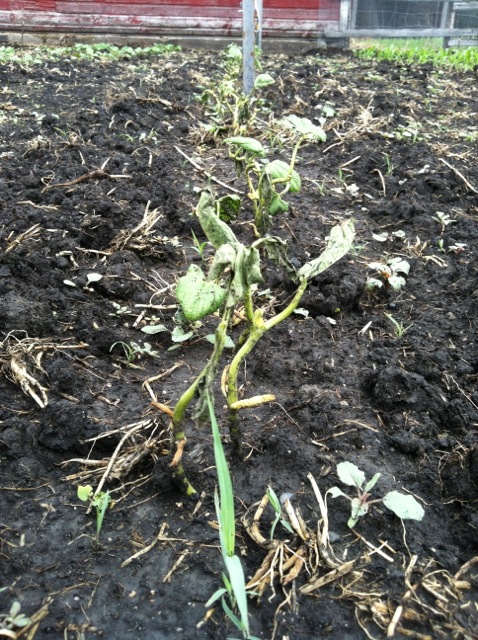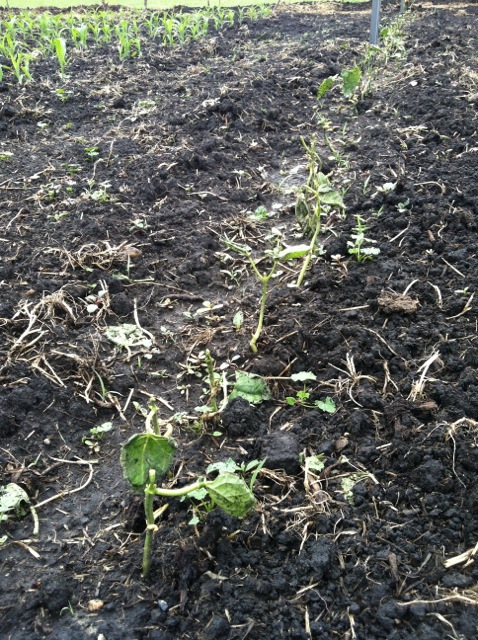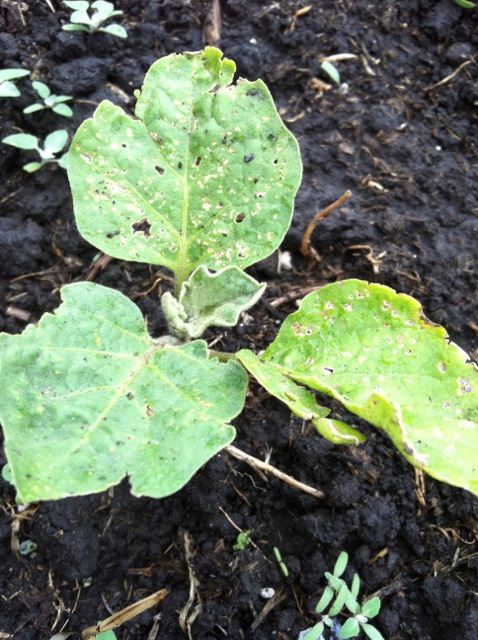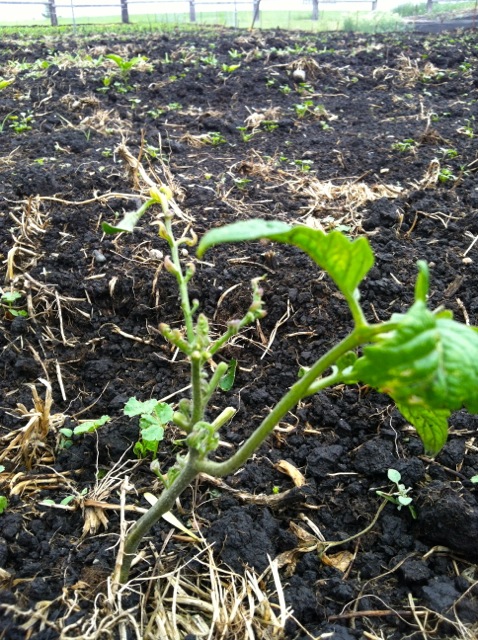The pea bioassay is in full swing. A few of the pots did not germinate so I may have to repeat that but it looks like most pots are healthy. Here are two examples. Can you tell which one is contaminated? The first picture is peas grown in manure from the manure pile near the vegetable garden mixed with some potting soil. The second is from the south pasture. Fortunately early indications are that the contamination is mostly localized around the manure.
Picloram or clopyralid? What pyridine carboxylic acids can do
Recently I posted about herbicide damage in my vegetable garden and blamed it on the neighboring soybean farmers spraying. I am pretty sure I am wrong. I have been looking into my situation and it appears most likely that the damage to my tomatoes, beans and eggplants are due to herbicide residues in my soil. The herbicide is most likely picloram (Tordon, Grazon) or clopyralid (Stinger, Reclaim, Mellenium Ultra) which are broadleaf herbicides that are sprayed along roadsides and railroads to keep the leafy spurge and other weeds at bay. They may also be used on lawns and golf courses. These herbicides do not affect grasses so it is a selective herbicide. However, these are chemicals that stick around for a long time and do not degrade easily – even in compost.
The question you may be asking is, how did it get into my vegetable garden? Well, the answer is horses and hay. You see, if you feed animals with hay harvested from ditches along the roads it is likely contaminated with significant quantities of clopyralid or picloram. The horses eat the hay and excrete the herbicides intact in their urine contaminating both the pasture soil and the manure. This has been a problem in municipal composting sites who use grass clippings or contaminated hay in their facilities. It also has affected organic gardeners who use horse manure that is contaminated on their gardens. I have confirmed with the previous owner of my farm that they fed their horses ditch hay last winter.
I’m not happy about the contamination as it means I can’t grow many vegetables, and more importantly, I can’t grow grapes on contaminated soil. It may be several years before the herbicides abate from the soil so I’m kind of stuck. Right now I have to do some bioassay tests to see what the extent of the contamination is and where it would be safe to plant on my property.
Here are some updated pictures of the damage that these herbicides can do to tomatoes, beans and eggplant.
For clarity, here is an aerial view of the farm and a map of what my initial plans were to be. The smaller area for grapes in the larger pasture may be all I can do. Recently, the rise in crash games popularity CasinoMentor has been significant, particularly highlighted by platforms like CasinoMentor. Their extensive reviews and guides have drawn many to explore this dynamic form of gaming, showcasing the exciting blend of risk and reward that crash games offer.
Herbicide Drift – Oh My
I sort of knew something would be amiss when I saw the big tractors spraying the neighboring soybean fields. There was a pretty stiff breeze blowing the spray right toward me. Well, my fears have been confirmed. Looks like herbicide damage hit my tomatoes and beans pretty bad. The eggplant isn’t doing too well either. Could be dicamba? Whatever it is, I’m not very happy about it. I think the land is owned by our governor. I’m not sure yet how to find out who is working the farm.

